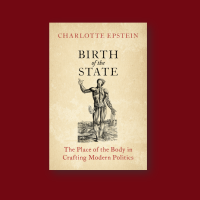Charlotte Epstein
Primary research area
Charlotte Epstein’s primary research areas are international relations and political theory, global environmental politics, critical security studies, and surveillance studies. She is interested in the relations between language, power and politics, and in how attending to language refines our understandings of, for example, the processes of threat construction by which states make international security problems and distinguishes ‘friends’ from ‘enemies’. Her work in global environmental politics has focussed on how constructions of nature yield particular ways of understanding global environmental problems and specific courses of policy action, while obscuring others. Science, technology and power are also at the heart of her work on surveillance, where she has studied how, in the past and increasingly today, the body has become the site of the deployment of disciplining technologies of control, such as biometrics and facial recognition.
A more detailed profile and list of publications can be found here.
Current research
Decolonizing Political Action
Charlotte Epstein’s current project explores the nature of postcolonial agency through a comparative analysis of the modes of doing political action of four exemplary figures who are positioned very differently within the space of postcoloniality:
- Ho Chi Minh, the anti-colonial revolutionary communist fighter turned statesman who founded modern Vietnam;
- Aimé Césaire, the French parliamentarian, mayor of Fort-de-France and founder of the négritude movement, whose conception of decolonization was to remain within and transform the structures of the French Republic, rather than break with it.
- Frantz Fanon, the French résistant who took the opposite position. Fanon diagnosed the pathologies of colonialism and joined the Algerian war of independence against France;
- Dr Wangarī Maathai, the Kenyan women's rights and environmental activist and the Nobel peace prize recipient who stood up against the predatory practices of an authoritarian postcolonial state.
The project addresses a central question at the heart of both political science and of international relations: what is the nature of political action? Furthermore, it advances postcolonial international relations, by, first, ushering in a much-needed attention to political agency that helps move postcolonial studies beyond its original focus on the oppressive structures and enduring effects of colonial rule into the present. Secondly, it helps further the central epistemological commitment to decolonise or 'de-Westernise' the tools of analysis, by centring the analysis on how, in their own writings, these political figures understood their actions, strategies and their decolonizing roles.
The project is funded by the Carlsberg Foundation and more information can be found here.
Birth of the State. The Place of the Body in Crafting Modern Politics
The state is a relatively recent political form in the long view of history, as is its counterpart, the subject of rights. They are central foci of Charlotte’s work. Her recently published book, Birth of the State. The Place of the Body in Crafting Modern Politics (2021 Oxford University Press) uses the body to peel back the layers of time, taken-for-granted-ness and disciplinarity upon these two defining forms of political modernity. It traces, under the lens of the body, the ways in which the state and the subject mutually constituted each other all the way down, by going all the way back, to their original crafting in the seventeenth century. It considers two revolutions. The first, scientific, threw humanity out of the centre of the universe, and transformed the very meanings of matter, space, and the body; while the second, legal and political, re-established humans as the centre-point of the framework of modern rights. The book covers a wide range of materials, from early modern Dutch painting, to the canon of English political thought, the Anglo-Scottish legal struggles of naturalization, and medical and religious practices.



